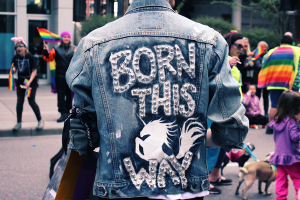People within the LGBTQ + community share many things in common outside of sexuality and identity. Many seek therapy for things like self-esteem concerns, anxiety, relationship issues, and more. Regardless of the reason, someone from the community might seek counseling, it is important that their therapist will be accepting and supportive.
What is LGBTQ Affirmative Therapy?
LGBTQ Affirmative Therapy was developed to address the unique emotional and mental health needs of members of the LGBTQ community. This therapy describes the acknowledgment and acceptance of an individual’s identity and sexual orientation. Therapists who offer affirmative therapy provide their LGBTQ + clients a safe space to develop a healthy sense of self and strengthen their voice.
Tenets Of LGBTQ Affirmative Therapy
LGBTQ + Affirmative Therapy can help someone challenged with mental health issues or Just navigate their life. Sometimes it may not mean one is indeed of a clinician for a DSM 5 disorder. Working with a licensed therapist can help navigate family challenges, workplace stressors, relationship struggles and adjusting to major life events in a healthy way. Here are some of the main tenets of LGBTQ Affirmative Therapy:
Safe Spaces
The most important aspect of effective therapy is creating a safe space for the client to explore their emotions and heal any trauma. In LGBTQ Affirmative Counseling, individuals are welcomed without any judgment or preconceived notions.
Finding a True Ally
Once a safe space and genuine trust have been established, an alliance can be fostered where the LGBTQ individual feels they are supported and celebrated.
Examine Faith of Others Verses Their Individual Beliefs
Sadly, some faith communities have been less that loving to individuals of the LGBTQ community. Some even harmful! You need a safe place where you will not be shamed or guilted about questioning a belief system that was handed down to you by a Family of Origin or some other group.
The process of faith deconstruction is where you examine your beliefs on God and or Spirituality. The goal is to investigate what YOU, the individual believes about God and faith. This can be a deeply personal journey filled with anxiety and fear around being once again- labeled some derogatory term by a group of people who just do not know your heart.
What is the Best Way to Find an LGBTQ + Affirmative Therapist?
If you would like to work with a trained LGBTQ + Affirmative therapist, there are several steps you can take to find one:
· Ask a friend or acquaintance for a referral
· As for a referral from a well-known LGBTQ + organization
· Do a Google search specifically using the term LGBTQ Affirmative Therapy
Make a list of two to three therapists who seem qualified to help you with your unique issues, then feel free to call them to get a sense of their personality. A good therapist will be happy to speak with you to make sure your questions are answered and you feel comfortable moving forward.
If you are experiencing a challenging time right now and would like to work with an LGBTQ + Affirming therapist, please reach out to me. I offer both in office as well as telehealth sessions and am happy to discuss how I may be able to help.
SOURCES:
· https://www.claritytherapynyc.com/lgbtqia-affirmative-therapy/
· https://psychcentral.com/blog/sex/2014/04/understanding-lgbtq-affirmative-psychotherapy#1
· https://www.goodtherapy.org/learn-about-therapy/issues/lgbt-issues
· https://www.ndsu.edu/fileadmin/hdfs/documents/misc/Affirmative_therapy_handout.pdf



Leave a Reply